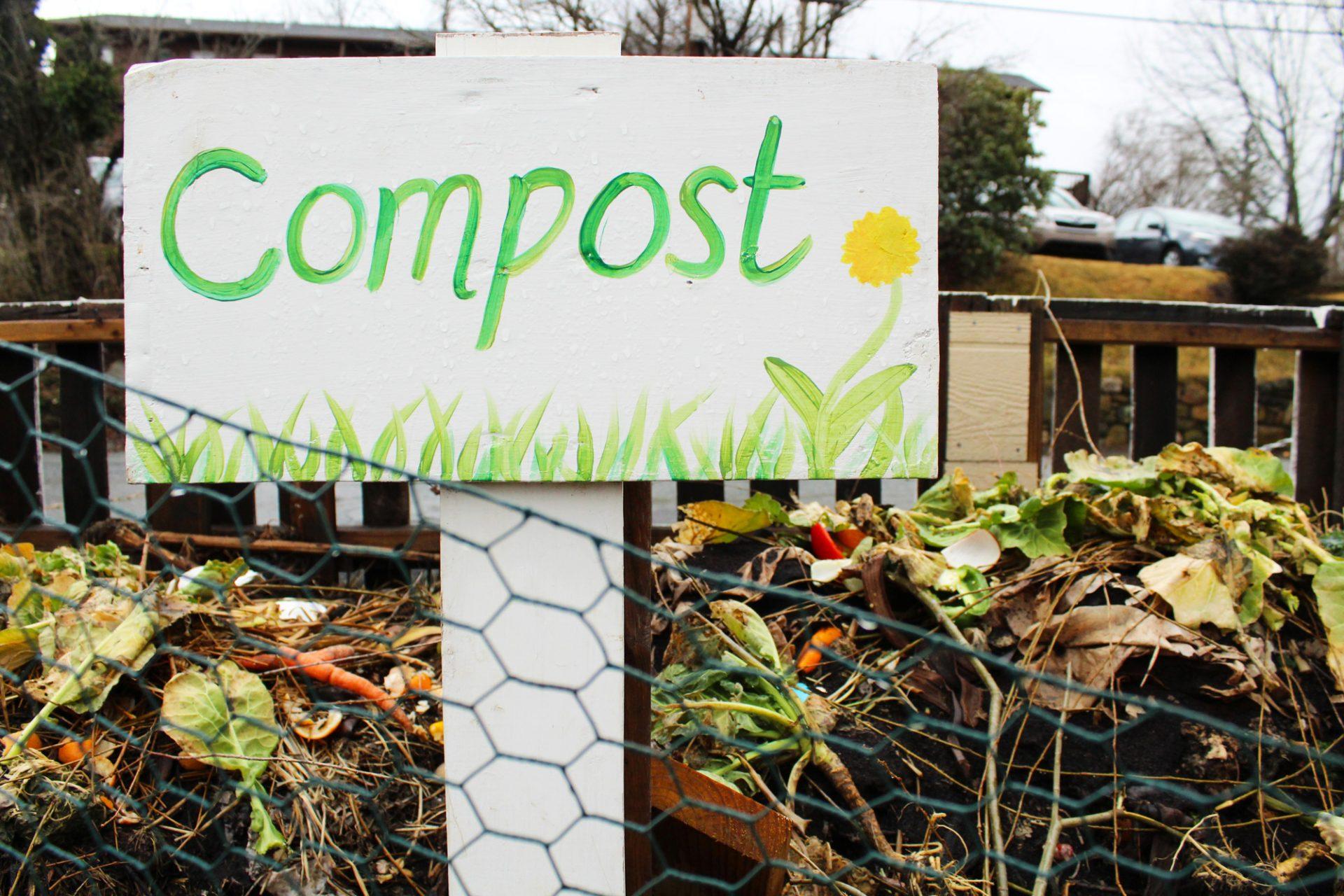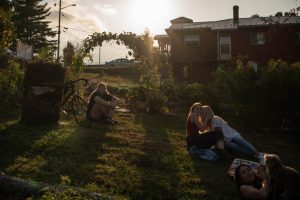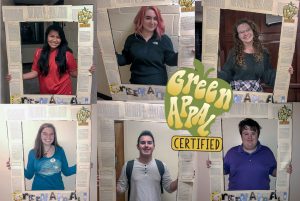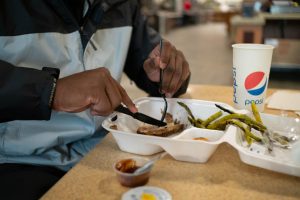Office of Sustainability hosts regular volunteer workdays in campus gardens to educate and give perspective
The compost pile at the Appalachian Roots Garden on Howard Street. Students can tend to the garden most Fridays from 10 a.m. to 2 p.m.
October 29, 2020
Freshman Sam Eisen was up early on Oct. 16 volunteering in the rain at the Roots Garden on Howard Street. Eisen has aspirations to live off the grid after college and wants to start learning how to be self-sustainable now.
“Sustainability is really important to me. And being self sufficient. So the more I learn now, the more I can apply later,” Eisen said.
Most Fridays from 10 a.m. to 2 p.m., students can go to the Roots Garden on Howard Street or the Sustainable Development Garden next to the Living Learning Center and help OOS representatives pull bad crops, establish paths and transition season to season.
“It gives students an opportunity to get out there and get their hands dirty and maybe learn something,” said Jim Dees, data and assessment specialist for the sustainability office.
Students can also earn service hours through volunteering for organization or a class they are a part of requires them.
President of App State’s Gardening Club, Katelynn Erm, said the purpose of these opportunities is to show members of the community the big picture of why the traditional food system is “not sustainable.” Mass-producing food and transporting it long distances can be expensive and harmful to the environment.
Dees said growing your own food is the ultimate form of sustainability — an art that has been lost due to technological advancement.
“If you expect someone else to do the work of feeding you, you are shifting the burden of your existence to someone else, which opens the door for injustice to invade the most basic of human endeavors,” Dees said. “You can cheat a farmer once or twice but the farmer cannot cheat the Earth for very long.”
Erm said she was inspired to join the team in part after working with a catering company in Charlotte before coming to App State.
“I would go into our walk in fridge and see all the cases of produce and food we would get in a single day. It got me thinking – how are we able to get this food to us all year round?” Erm said. “What is this agricultural practice doing to our land, water ways, ecosystems and our planet?”
The OOS garden team is composed of four people: Jim Dees, interim garden manager; Anne Fanatico, faculty sponsor for the SD garden; Brandon Turlington, a sophomore; and Erm, a senior.
Throughout the week, team members take note of what needs accomplishing and decide if volunteers are needed. Dees said some of these responsibilities can be time consuming for one person, but can be easily attained with many hands at work.
The food grown in the campus gardens is distributed widely throughout the App State and Boone community. Portions go to the Mountaineer Food Hub, F.A.R.M Cafe, Hunger and Health Coalition and free food boxes outside the gardens.
“Wherever there’s an opportunity to put some food in front of hungry mouths — that’s what we do,” Dees said.
The Office of Sustainability also works alongside the sustainable development department and the Sustainable Development Teaching and Research Farm in Ashe County. Erm said working in the campus gardens is a great opportunity for students who don’t have a class at the farm or those who want to learn more about agriculture on a medium scale.
Dees said working in the campus gardens invokes an appreciation for the work necessary to produce food.
“When you’re talking about the scale of produce that it takes to feed a campus, you’re not gonna do that in an eight foot by three foot bin,” Dees said. “People don’t grasp the scale that it takes so we’re trying to demonstrate that.”
Dees said this realization came to him after he and his family spent multiple months cultivating a four-by-eight-foot plot of potatoes. After harvest, they had enough potatoes to feed his family of seven for just one meal.
In light of COVID-19, the campus gardens are providing hand washing stations, sanitizing tools, ensuring volunteers have completed their wellness checks and requiring masks.
The team has also seen a decrease in the amount of volunteers and ambassadors compared with past semesters.
Erm said the campus gardens do more than provide the community with fresh produce: they provide connections, friendships and serve as a place to let the mind wander.
“It all starts with a little bit of exposure to get people talking, listening, acting and sharing,” Erm said. “I think our gardens provide this space, and I’m so grateful to be a part of this community.”















